In the week that Gauteng became the new hotspot of the coronavirus, Health MEC Bandile Masuku said he sometimes grows overwhelmed by the crisis, wants stricter lockdown regulations in the province, and that people should expect more death in the weeks ahead.
“Do you ever feel overwhelmed? Do you ever feel like there is no way forward fighting this once in a lifetime pandemic? Like there is nothing more we can do?” I ask Gauteng Health MEC Bandile Masuku at the start of our telephonic interview.
A tired sounding Masuku with the conversation of an urgent meeting audible in the background – says he has, in the past, “gotten to a point like that”.
“But,” Masuku says, taking a pause, “that is something that I would like not to experience.”
And, in those moments, when the task at hand feels too big to handle, what does he do to move past the hopelessness?
“A chat to the minister, a chat to the premier, and a chat with my wife, it always gets me out,” Masuku says, his voice softening.
Throughout the interview, Masuku’s answers were brief and to the point.
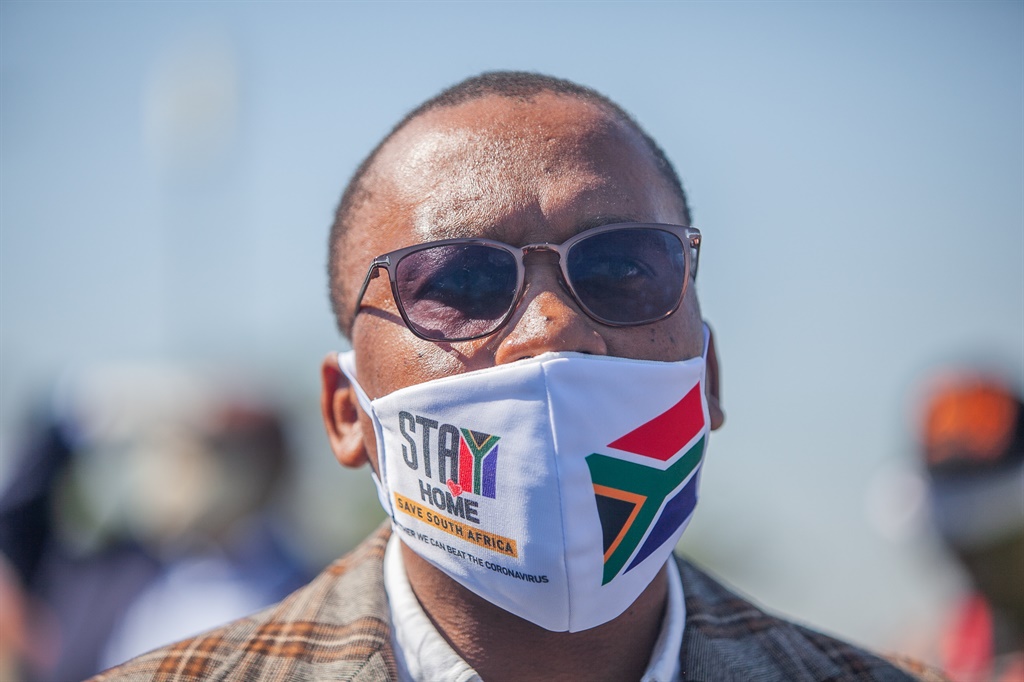


Gauteng MEC for Health Dr Bandile Masuku visits Diepsloot COVID-19 screening and testing site at Diepsloot Sarafina Park in May (Photo by Sharon Seretlo/Gallo Images via Getty Images)
The MEC, who slept four hours the previous night, tells me that he is often kept awake, thinking about ways to prevent the loss of life.
Masuku was speaking to News24 from the Gauteng command centre, while at the same time trying to follow a virtual meeting.
His province, which is the most populous in South Africa, became the country’s Covid-19 hotspot on the day of the interview – surpassing the Western Cape in terms of confirmed cases.
Masuku, a trained doctor, took over the embattled health portfolio in Gauteng after the 2019 elections.
He says he often wakes up before sunrise doing radio interviews and reading articles before attending to his first engagements – from 09:00 in the morning.
In the afternoon, Provincial Coronavirus Command Council meetings take place, and then it’s on to meetings of the national health council in the evening, which occasionally run past midnight.
In the weeks ahead, Masuku says people should expect the Gauteng death rate – currently “quite low” at around 2% of cases – to increase.
But, he says, it will hopefully not surpass “maybe 2 000” casualties.
He says provincial hospitals are set to reach full capacity by next week, which is when field hospitals will start taking patients in large numbers.
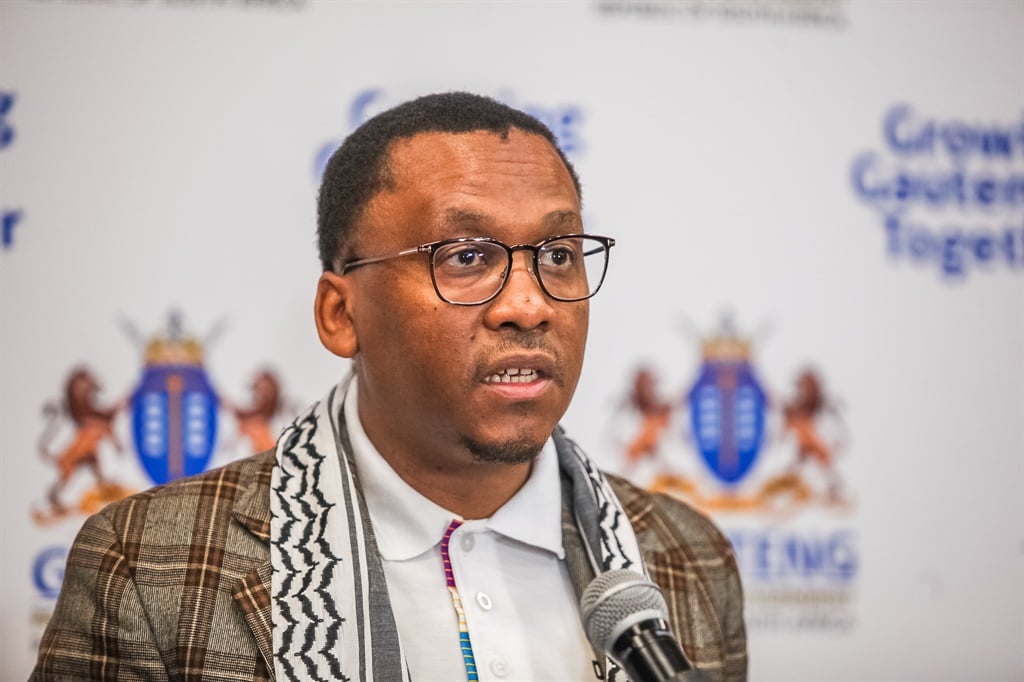


Gauteng Health MEC Dr Bandile Masuku unveils the establishment of a single government-operated nursing college in the province known as the Gauteng College of Nursing (GCoN) in July (Photo by Sharon Seretlo/Gallo Images via Getty Images)
The Sunday Times last week reported that Masuku was calling for a provincial increase in lockdown restrictions as a way to control the spread of the virus.
The province, however, quickly distanced itself from the statement, saying it was only calling for a better implementation of current restrictions.
But Masuku is adamant that some regulations from lockdown Level 5 should still apply, such as the 20:00 curfew, movement between provinces, and a restriction on alcohol sales, which he says has led to an increase in trauma cases at public hospitals.
“We are looking for regulations that will be enforceable, that will give us maximum impact on interrupting the passing of the virus, and these are the regulations we identified.”
He says even stricter regulations will only be triggered when the province goes into “bigger trouble”, after hospital bed capacity has been reached.
The National Coronavirus Command Council (NCCC) is set to have a meeting in the afternoon to discuss stricter lockdown regulations for the province, Masuku says.
Meanwhile, he has urged people living in Gauteng to adhere to the current lockdown regulations.
“We still have a chance of us controlling the impact of the pandemic if we do follow some of the basic things we need to do.”
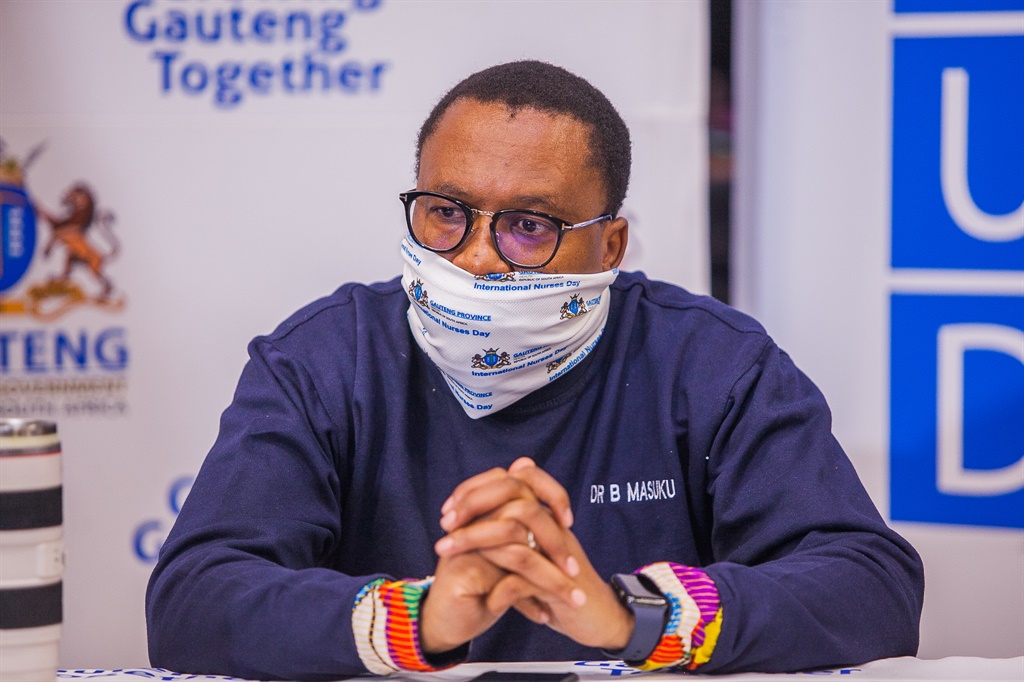


Gauteng Health MEC Dr Bandile Masuku presides over the Personal Protective Equipment (PPEs) donations from United Nations Development Programme (UNDP) in July (Photo by Sharon Seretlo/Gallo Images via Getty Images)
Masuku says he is, however, not concerned that the Gauteng health system will reach capacity, explaining that additional capacity has been introduced at more than 20 hospitals in the province – aside from standalone facilities built, such as Nasrec.
“I wouldn’t say our healthcare system is overwhelmed, I would say that it is under pressure and we are feeling the strain.
“And this is what we normally go through during winter and now, with the extra burden of Covid, it places the system more under pressure. The field hospitals, the tents, will help us to relieve some of the congestion that we normally see.”
But Masuku admits the number of cases in the province is ahead by “around 2 000 or so”, compared to what the models predicted at the start of the pandemic.
This he attributes to the models assuming the lockdown would’ve been in place for a longer period of time, and stricter regulations being in place.
The province no longer tests the general public; they are limited to healthcare workers and people who are hospitalised.
The real level of infections may, therefore, be considerably higher.
“One thing the models have been correct [about] is when we will start to run out of beds, which is the second part of July, which is where the field hospitals will be able to cater,” Masuku says.
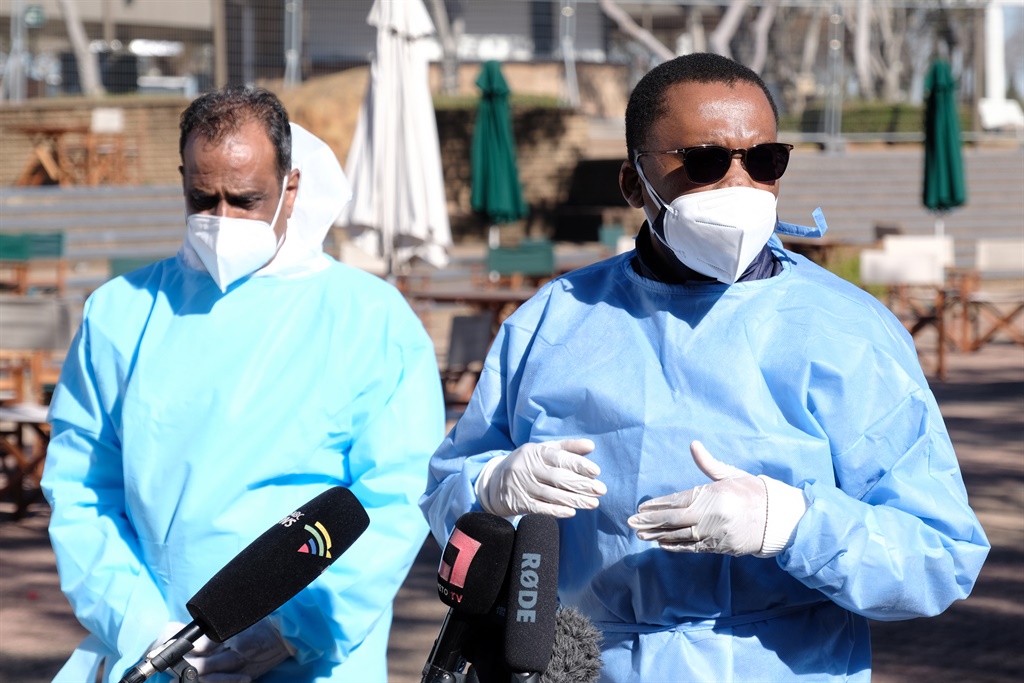


Gauteng MEC Dr Bandile Masuku and health officials during a TV interview. Masuku visited the NASREC Quarantine Site to inspect facilities and monitor patient care experience. The site became operational on June 15. (Photo by Dino Lloyd/Gallo Images via Getty Images)
He now expects the peak of coronavirus cases “to be a bit closer than what we expected”, arriving by around mid-August.
Only by the beginning of September, will the province be out of the “danger zone”, he says.
“And let me qualify that – our definition is clear about what we would like to see coming if we say we are out of the danger zone. It’s when the system is comfortably, without pressure, without strain, able to deal with the numbers of people who are infected, who require medical help.”
That is “most definitely” the point when the general public should only begin to expect a further easing of lockdown regulations.
At the beginning of the pandemic, Masuku says he introduced auditing measures to ensure that corruption does not take place with the procurement of emergency supplies, which the health department is often accused of.
“We don’t want scandals coming out when the pandemic is over.”
Furthermore, standards were put in place to ensure that Covid-19 patients are not treated outside, or in a wheelchair, or on a floor.
“At least, even if we are under pressure, patients must still have a decent and a dignified way of being treated.”
The 44-year-old Masuku was born at Chris Hani Baragwanath Hospital in Soweto and, in 1994, began studying medicine at the Sefako Makgatho Health Sciences University, where he chaired the student representative council.
He worked at several hospitals in Gauteng, including Pholosong Hospital, Charlotte Maxeke Johannesburg Academic Hospital and Chris Hani Baragwanath Hospital.
In 2013, he was appointed as the spokesperson of the ANC Youth League.
With reference to the ANC, which has seen electoral decline under former president Jacob Zuma, Masuku says Covid-19 has reminded the governing party to listen to experts.
“What Covid also has exposed is how we have understated poverty, we have understated food security, and I think what we have demonstrated as government is the ability to step up and lead the country in dealing with Covid. And I think that should count for something,” Masuku says.
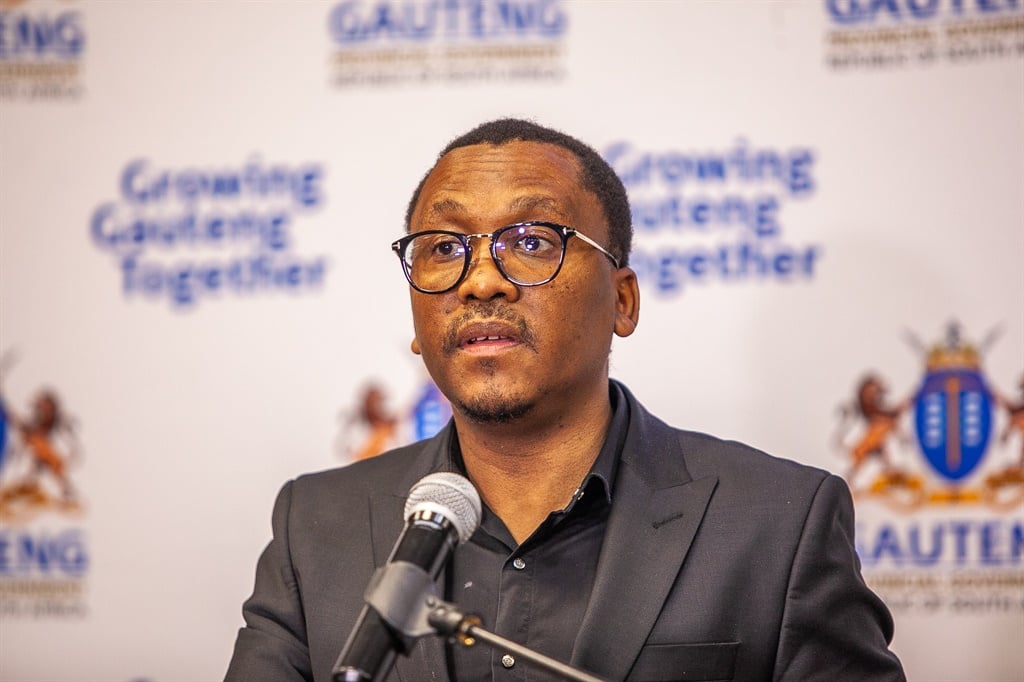


Gauteng MEC for Health, Dr Bandile Masuku
Gallo Images Photo by Gallo Images/Sharon Seretlo
The father of three drinks what he described as a “concoction” of fruits and vegetables every morning to remain healthy.
He says talks with his wife, City of Johannesburg MMC Loyiso Masuku, in the morning keep him mentally sane during the day.
But, he adds, it is “inevitable” that he will get Covid.
Six members of the Gauteng Covid-19 war room and Premier David Makhura tested positive for the virus over the past week.
“Plans are in place for the day that happens, the government will go on and we will keep on serving our people,” Masuku says.
He is also afraid that he – like the thousands of healthcare workers across the province – will burn out in the weeks ahead when the coronavirus peak hits the province.
But, he adds, the dedication of public officials keeps him moving.
“It’s the commitment I see from the healthcare workers on the ground, with all the challenges that we have every day, that they wake up every day to deliver quality healthcare,” Masuka says.
“If they wake up in the morning and go and do this, I also have to go and do my part to defeat the virus.”

